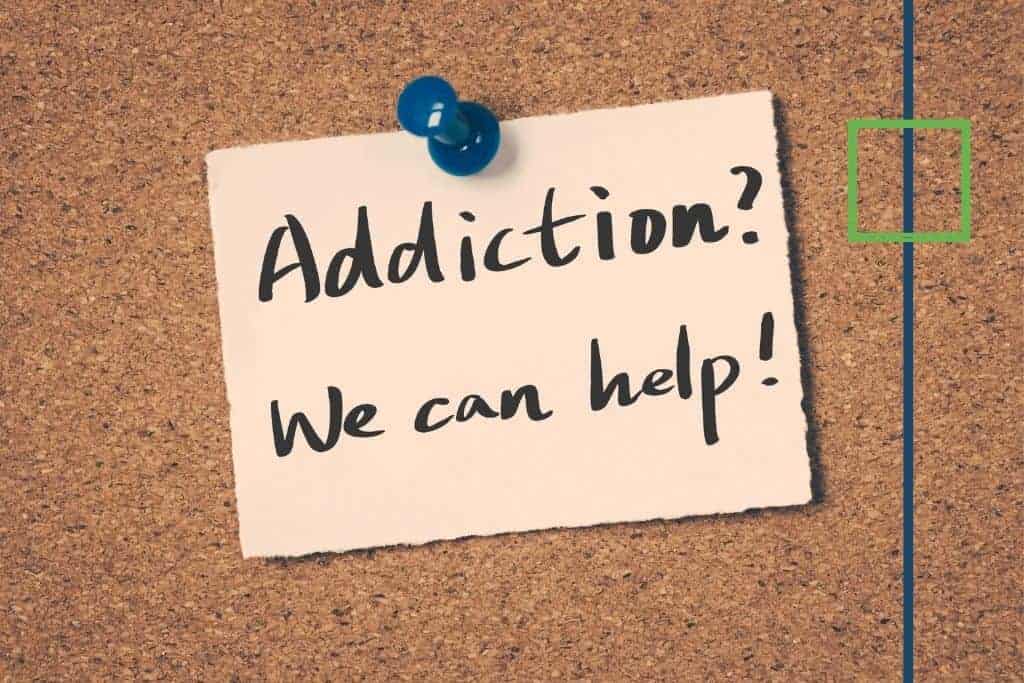Why an Addict Can’t Love You
Love is a complex and beautiful emotion, capable of healing wounds and transforming lives. However, when love intertwines with addiction, the outcome can be heartbreaking. This article delves into the intricate dynamics of love, addiction, and recovery, shedding light on why an addict can’t love you. We’ll also explore the telltale signs that you might be dating a drug addict and the challenges and rewards of dating someone in recovery. Join us as we navigate the highs and lows of relationships marked by addiction and resilience, uncovering valuable insights for those seeking understanding and love during these complex circumstances.
At We Level Up Treatment Center, understanding “Why an Addict Can’t Love You” is crucial to our approach to drug addiction treatment. We recognize that addiction often affects individuals’ ability to form healthy, loving relationships. By addressing the underlying emotional and psychological barriers that addiction creates, the center aims to help individuals rebuild their capacity to love and connect with their loved ones.
The Struggles of Dating a Recovering Addict
Dating a recovering addict can be a rewarding yet challenging experience. It’s essential to approach such a relationship with understanding, patience, and empathy. Here are some of the struggles you might encounter when dating a recovering addict:
- Trust Issues: Trust is a foundational aspect of any relationship, but it can be incredibly fragile when dating a recovering addict. You may struggle with doubts and insecurities about past behaviors and wonder if they’ll relapse.
- Emotional Rollercoaster: Recovery is a journey filled with ups and downs. Your partner may face emotional challenges, mood swings, and cravings that can impact your relationship dynamics.
- Codependency: It’s common for loved ones of addicts to develop codependent tendencies. You might be overly focused on their recovery or sacrificing your needs and boundaries to support them.
- Limited Social Activities: In early recovery, individuals often must avoid environments or social circles that could trigger cravings. This can limit your social activities as a couple, which might lead to feelings of isolation.
- Communication Challenges: Open and honest communication is vital in any relationship, but discussing sensitive addiction-related topics can be difficult. Your partner might struggle to share their thoughts and feelings, and you may find it challenging to express your concerns without triggering them.
- Relapse Fears: The fear of a relapse is a constant concern for you and your partner. This fear can stress the relationship and lead to overprotective behaviors or a lack of trust.
- Dealing with Guilt and Shame: Recovering addicts often grapple with guilt and shame over their past actions and the impact on their loved ones. This emotional baggage can affect your relationship.
- Enabling vs. Supporting: Striking the right balance between supporting and enabling addictive behaviors can be challenging. You may struggle to identify when you’re helping your partner stay on the path to recovery and when you might inadvertently make it easier for them to relapse.
- External Judgment: Society can be judgmental, and you may face criticism or disapproval from friends and family who don’t understand the complexities of addiction and recovery.
- Uncertain Future: Dating a recovering addict often comes with uncertainty about the future. You may question whether your partner will maintain their sobriety long-term and whether your relationship will endure the challenges.

Skip To:
Learn More:
- How To Leave A Crack Addict? Ending A Toxic Relationship
- Relationship between Stress and Addiction Recovery Success
- Is Addiction a Disease? Learn the Disease Model of Addiction. Is Drug Addiction a Disease?
- How to Overcome Addiction Recovery Testimonies. Incredible Addiction Stories on Overcoming Addiction. Top 5 How to Overcome An Addiction Tips & Strategies.

Despite these struggles, it’s important to remember that dating a recovering addict can also bring many rewards. Building a solid and fulfilling relationship is possible with both partners’ proper support, patience, and commitment. Many recovering addicts successfully maintain their sobriety and go on to have healthy, loving relationships. Open communication, education about addiction and recovery, and seeking support from therapists or support groups can help you navigate these challenges together.
Through personalized treatment plans, therapy sessions, and counseling, We Level Up Treatment Center helps individuals in recovery explore the impact of addiction on their ability to love and connect with others.
Addiction Fact Sheet
Introduction: Addiction is a complex and often misunderstood phenomenon. This fact sheet provides essential information about classifying addiction as a disease, highlighting key facts and concepts.
1. Addiction as a Disease:
- Definition: Addiction is commonly recognized as a chronic, relapsing brain disease characterized by compulsive substance use or behavior despite harmful consequences.
- Brain Changes: Addiction causes significant alterations in the brain’s structure and function, particularly in the areas responsible for reward, motivation, and decision-making.
2. The Disease Model of Addiction:
- Overview: The Disease Model of Addiction posits that addiction shares similarities with other chronic diseases, such as diabetes or hypertension, regarding its biological basis and the need for ongoing management.
- Biological Factors: Genetic and neurobiological factors can increase susceptibility to addiction.
3. Physical vs. Psychological Dependence:
- Physical Dependence refers to the body’s adaptation to a substance, leading to withdrawal symptoms when the substance is removed.
- Psychological Dependence: Psychological reliance on a substance or behavior can lead to cravings, compulsive use, and difficulty quitting.
4. Addiction vs. Substance Abuse:
- Addiction: Involves a more severe and chronic pattern of substance use, often characterized by physical and psychological dependence.
- Substance Abuse: Refers to harmful or hazardous use of a substance without the presence of dependence.
5. Treatment and Recovery:
- Treatment: Addiction can be effectively treated through behavioral therapies, medication, and support groups.
- Recovery: Recovery is an ongoing process that may require long-term management and lifestyle changes.

Get Your Life Back
Find Hope & Recovery. Get Safe Comfortable Detox, Addiction Rehab & Dual Diagnosis High-Quality Care.
Hotline(844) 597-1011Dating a Drug Addict Statistics
According to the National Survey on Drug Use and Health (NSDUH), approximately 19.4 million adults in the United States struggled with a substance use disorder in 2020. This sobering statistic underscores the prevalence of addiction in our society, emphasizing the likelihood that you may encounter someone with substance abuse issues while dating.
- Prevalence of Addiction:
- According to the Substance Abuse and Mental Health Services Administration (SAMHSA), in 2020, an estimated 20.3 million people aged 12 or older had a substance use disorder in the United States.
- Divorce and Separation Rates:
- Research published in the “Journal of Marriage and Family” has shown that marriages with one or both partners have a substance use disorder are twice as likely to divorce as couples without addiction issues.
- Domestic Violence and Addiction:
- The National Council on Alcoholism and Drug Dependence (NCADD) reports that individuals with substance use disorders are more likely to engage in domestic violence, which can significantly strain relationships.
6.8 million
GAD affects 6.8 million adults or 3.1% of the U.S. population, yet only 43.2% receive treatment.
Source: National Institute on Mental Health
19 million
Nineteen million adults experience specific phobias, making it America’s most common anxiety disorder.
Source: ADAA, 2020
17.3 million
Major depressive disorder affects approximately 17.3 million American adults, or about 7.1% of the U.S. population aged 18 and older.
Source: National Institute of Mental Health
What Does Dating Addicts Look Like?
Dating someone with an addiction can vary widely depending on the substance or behavior they are addicted to, the severity of their addiction, and their stage of recovery. Here are some common characteristics and dynamics that dating someone with an addiction may involve:
- Erratic Behavior: Addicts often exhibit unpredictable behavior driven by cravings or withdrawals. They may disappear for extended periods, engage in risky activities, or neglect responsibilities.
- Secrecy and Lies: Addiction can lead to dishonesty and secrecy. An addict might hide their substance use or downplay its extent to keep their partner in the dark.
- Financial Strain: Addictions are expensive, and supporting a habit can drain a person’s finances. This may lead to financial stress in the relationship, with the partner often feeling the burden.
- Unpredictable Mood Swings: Substance use and withdrawal can cause mood swings, irritability, and emotional instability, making it challenging to communicate or connect with the addict.
- Neglected Responsibilities: Addicts may neglect their obligations, such as work, family, or household duties, leading to increased responsibilities for their partner.
- Isolation: Addicts may isolate themselves from loved ones or engage with a social circle around their addiction. This can lead to feelings of isolation and loneliness for their partner.
- Enabling Behaviors: Loved ones of addicts may inadvertently enable their behavior by covering up for them, providing financial support, or making excuses. This can perpetuate the addiction.
- Conflict and Arguments: Frequent arguments and conflicts are common in relationships with addicts, often related to their substance use, neglect, or dishonesty.
- Emotional Turmoil: Partners of addicts may experience emotional turmoil, including frustration, anger, sadness, and helplessness, as they witness their loved one’s struggles.
- Attempts at Intervention: Partners may often attempt to help the addict seek treatment or change their behavior. This can be met with resistance, denial, or reluctance to seek help.
- Insecurity and Low Self-Esteem: Partners of addicts may experience a decline in self-esteem due to the emotional and psychological toll of the relationship.
- Fear of Loss: Despite the challenges, many partners of addicts deeply care about their loved ones and fear losing them to addiction. This fear can make it difficult to leave the relationship.
It’s important to note that dating an addict is not inherently doomed to fail. Recovery is possible, and many people successfully overcome addiction with the proper treatment and support. However, it often requires both partners to be committed to change and healing. Suppose you’re in a relationship with an addict. In that case, it’s crucial to seek support for yourself, whether through therapy, support groups, or counseling, as you navigate the complexities of the relationship and make informed decisions about its future.
Get Help. Get Better. Get Your Life Back.
Searching for Accredited Drug and Alcohol Rehab Centers Near You?
Even if you have failed previously and relapsed, or are in the middle of a difficult crisis, we stand ready to support you. Our trusted behavioral health specialists will not give up on you. When you feel ready or just want someone to speak to about therapy alternatives to change your life call us. Even if we cannot assist you, we will lead you to wherever you can get support. There is no obligation. Call our hotline today.
(844) 597-1011Dating an Addict in Recovery
Dating someone in recovery from addiction presents its own unique set of challenges and rewards. On one hand, it can be a hopeful and inspiring journey as you witness your partner’s commitment to overcoming their addiction and rebuilding their life. On the other hand, it requires patience, understanding, and a willingness to navigate the complexities of the recovery process.
One of the critical challenges when dating an addict in recovery is the ongoing vulnerability to relapse. Early recovery can be fragile, and your partner may face triggers, cravings, and emotional ups and downs. This can strain the relationship, as you may need to adapt to sudden changes in your mood or behavior. Additionally, you may need to make adjustments in your own life to support their recovery, such as avoiding certain social situations or locations that could be triggering.
Communication is paramount in such a relationship. Both partners should feel comfortable discussing their feelings, concerns, and boundaries openly and honestly. It’s essential to balance providing support and maintaining your well-being, as codependency can be risky. Encouraging your partner’s involvement in a support network, such as 12-step programs or therapy, can also be beneficial.

Despite the challenges, dating someone in recovery can also be incredibly rewarding. Witnessing their growth, self-improvement, and commitment to sobriety can be inspiring. It can create a strong trust and emotional intimacy foundation as both partners work together to overcome obstacles.
Ultimately, dating an addict in recovery requires deep empathy and patience. It’s important to remember that recovery is a lifelong journey, and setbacks may occur. Supporting your partner’s sobriety while maintaining your boundaries and well-being is critical to building a healthy, lasting relationship.
Signs You’re Dating a Drug Addict
Dating someone with a drug addiction can be emotionally challenging and potentially harmful to your well-being. It’s crucial to be aware of signs that may indicate you’re in a relationship with a drug addict. While these signs are not definitive proof of addiction, they should raise concerns and prompt further investigation and discussion. Here are some signs to look out for:
- Frequent Mood Swings: Rapid and extreme changes in mood, from euphoria to irritability or depression, can indicate drug use or withdrawal.
- Secrecy and Deception: An addict may become secretive about their activities, whereabouts, and who they spend time with. They may lie or make excuses to cover up their drug use.
- Financial Instability: A drug addict may have unexplained financial difficulties, such as borrowing money frequently, stealing, or selling personal belongings to fund their habit.
- Social Isolation: Drug addicts may withdraw from friends and family, often spending time with a new group of people who share their addiction.
- Changes in Physical Appearance: Addiction can lead to neglect of personal hygiene and a noticeable deterioration in physical appearance, such as weight loss, changes in skin tone, or bloodshot eyes.
- Neglect of Responsibilities: Prioritizing drug use over responsibilities like work, family, or childcare can indicate addiction.
- Loss of Interest: An addict may lose interest in activities and hobbies they once enjoyed or neglect their personal goals and ambitions.
- Unexplained Health Issues: Frequent illnesses, infections, or sudden and unexplained health problems can be related to drug use, primarily if the person engages in risky behaviors like sharing needles.
- Changes in Sleep Patterns: Disrupted sleep patterns, insomnia, or excessive drowsiness during the day can be signs of drug use.
- Paraphernalia: Drug paraphernalia like needles, pipes, burnt spoons, or pill bottles in their personal belongings or living space is a clear indicator of drug use.
- Unusual Behaviors: Look for unusual behaviors like frequent disappearances, erratic driving, or unexplained absences.
- Legal Issues: Frequent encounters with law enforcement, such as arrests for drug-related offenses, can be a vital sign of addiction.
If you suspect that you are dating someone with a drug addiction, it’s essential to prioritize your safety and well-being. Open and honest communication is vital. Encourage your partner to seek help and support for their addiction, but be prepared to set boundaries to protect yourself if they are unwilling to address their problem. Addiction is a complex issue, and it may require professional intervention and treatment to overcome. Consider seeking guidance from a therapist or counselor to help you navigate this challenging situation and make informed decisions about your relationship.
First-class Facilities & Amenities
World-class High-Quality Addiction & Mental Health Rehabilitation Treatment
Rehab Centers TourRenowned Addiction Centers. Serene Private Facilities. Inpatient rehab programs vary.
Addiction Helpline(844) 597-1011Proven recovery success experience, backed by a Team w/ History of:
15+
Years of Unified Experience
100s
5-Star Reviews Across Our Centers
10K
Recovery Success Stories Across Our Network
- Low Patient to Therapist Ratio
- Onsite Medical Detox Center
- Comprehensive Dual-Diagnosis Treatment
- Complimentary Family & Alumni Programs
- Coaching, Recovery & Personal Development Events
What to do When Dating a Recovering Addict
When Dating a Recovering Addict, it’s crucial to approach the relationship with care, understanding, and a commitment to both your partner’s well-being and your own. Here are some essential steps and considerations to keep in mind:

- Educate Yourself: Learn about addiction and recovery.
- Open Communication: Encourage honest dialogue.
- Set Boundaries: Protect your well-being and avoid co-dependency.
- Attend Support Groups: Seek guidance from groups like Al-Anon.
- Avoid Triggers: Be mindful of situations that may trigger cravings.
- Encourage Healthy Activities: Engage in positive, health-promoting activities.
Drug Addiction Treatment at We Level Up Treatment Center
Drug addiction treatment is a comprehensive and structured approach to helping individuals overcome substance abuse and achieve lasting recovery. It typically involves a combination of medical, psychological, and behavioral interventions tailored to the individual’s specific needs and circumstances. Here are some key components of drug addiction treatment:
- Assessment and Evaluation: Initial assessment to determine the treatment plan.
- Detoxification (Detox): Safely managing withdrawal under medical supervision.
- Inpatient/Residential or Outpatient Treatment: Structured therapy in a residential setting or at home.
- Medication-Assisted Treatment (MAT): Medications combined with counseling, often for opioid addiction.
- Behavioral Therapy: Various types of therapy address psychological aspects.
- Counseling: Individual and group counseling sessions.
- Family Involvement: Therapy and education for families.
- Aftercare and Relapse Prevention: Preparing for life after treatment.
- Holistic Approaches: Incorporating holistic therapies for well-being.
- Dual Diagnosis Treatment: Addressing co-occurring mental health issues.
- Peer Support: Participation in support groups like AA and NA.
- Individualized Treatment Plans: Personalized approach to treatment.
Each element is vital in helping individuals overcome drug addiction and achieve lasting recovery.
By actively addressing the emotional struggles and relational challenges that addiction can bring, We Level Up Treatment Center empowers individuals to heal from their substance dependence and the wounds inflicted on their ability to love and connect with others. Our holistic approach to addiction treatment encompasses both the recovery journey and the restoration of meaningful and loving relationships, emphasizing the importance of addressing why an addict can’t love you.
World-class, Accredited, 5-Star Reviewed, Effective Addiction & Mental Health Programs. Complete Behavioral Health Inpatient Rehab, Detox plus Co-occuring Disorders Therapy.
CALL(844) 597-1011End the Addiction Pain. End the Emotional Rollercoaster. Get Your Life Back. Start Drug, Alcohol & Dual Diagnosis Mental Health Treatment Now. Get Free No-obligation Guidance by Substance Abuse Specialists Who Understand Addiction & Mental Health Recovery & Know How to Help.
Popular FAQs about Why an Addict Can’t Love You
-
What Does it Mean When People Say “An Addict Can’t Love You”?
This phrase suggests that addiction can significantly impact individuals’ ability to engage in healthy, loving relationships. It implies that addiction takes precedence over love and can hinder their capacity to give and receive love.
-
Is it possible for an Addict to Love Someone While Struggling with Addiction?
Yes, an addict can experience love for someone while struggling with addiction. However, their actions and behaviors may not always reflect that love due to the overwhelming influence of the addiction.
Experience Transformative Recovery at the We Level Up Treatment Center.
See our authentic success stories. Get inspired. Get the help you deserve.
Experience Transformative Recovery at We Level Up Treatment Centers.
See our authentic success stories. Get inspired. Get the help you deserve.
Start a New Life
Begin with a free call to an addiction & behavioral health treatment advisor. Learn more about our dual-diagnosis programs. The We Level Up Treatment Center Network delivers recovery programs that vary by each treatment facility. Call to learn more.
- Personalized Care
- Caring Accountable Staff
- World-class Amenities
- Licensed & Accredited
- Renowned w/ 100s 5-Star Reviews
We’ll Call You
Powerful Video Overcoming Prescription Drugs Abuse like Gabapentin Addiction
Jen’s Addiction Recovery Story
Reclaiming My Life: Overcoming Addiction and Rebuilding Relationships
I longed for my old life, but addiction had turned me into a mere shell of myself. I yearned to regain the trust of my loved ones, especially my children and family. It all started innocently enough, with a car accident followed by getting caught up in the murky world of prescription medication. Before I knew it, I was trapped in a fog of addiction. My mind justified it, telling me it was okay because a doctor prescribed it.
Little did I realize, I was spiraling down a dangerous path. Thankfully, Level Up came into my life, providing support for my family and nurturing my personal growth. When I first walked through their doors, I was filled with fear and intimidation. However, their guidance and teachings have empowered me to discover my true self. And now, receiving a midday call from my twenty-one-year-old daughter, simply saying “I love you, Mom,” is nothing short of incredible.
Jen’s Addiction Recovery Testimonial
Search Why an Addict Can’t Love You We Level Up Alcohol Poisoning Detox, Mental Health Topics & Resources
Sources
[1] Newman RK, Stobart Gallagher MA, Gomez AE. Alcohol Withdrawal. [Updated 2022 Aug 29]. In: StatPearls [Internet]. Treasure Island (FL): StatPearls Publishing; 2023 Jan-. Available from: https://www.ncbi.nlm.nih.gov/books/NBK441882/ tags: Why an Addict Can’t Love You
[2] Alcohol Facts and Statistics – National Institute on Alcohol Abuse and Alcoholism (NIAAA) tags: Why an Addict Can’t Love You
[3] Nehring SM, Freeman AM. Alcohol Use Disorder. [Updated 2022 Jul 31]. In: StatPearls [Internet]. Treasure Island (FL): StatPearls Publishing; 2023 Jan-. Available from: https://www.ncbi.nlm.nih.gov/books/NBK436003/ tags: Why an Addict Can’t Love You
[4] Alozai Uu, Sharma S. Drug and Alcohol Use. [Updated 2022 Jun 21]. In: StatPearls [Internet]. Treasure Island (FL): StatPearls Publishing; 2023 Jan-. Available from: https://www.ncbi.nlm.nih.gov/books/NBK513263/
[5] Alcohol use disorder – Available from: https://medlineplus.gov/download/genetics/condition/alcohol-use-disorder.pdf
[6] Huebner RB, Kantor LW. Advances in alcoholism treatment. Alcohol Res Health. 2011;33(4):295-9. PMID: 23580014; PMCID: PMC3860532.
[7] Center for Substance Abuse Treatment. A Guide to Substance Abuse Services for Primary Care Clinicians. Rockville (MD): Substance Abuse and Mental Health Services Administration (US); 1997. (Treatment Improvement Protocol (TIP) Series, No. 24.) Chapter 5—Specialized Substance Abuse Treatment Programs. Available from: https://www.ncbi.nlm.nih.gov/books/NBK64815/
[8] LaHood AJ, Kok SJ. Ethanol Toxicity. [Updated 2023 Mar 13]. In: StatPearls [Internet]. Treasure Island (FL): StatPearls Publishing; 2023 Jan-. Available from: https://www.ncbi.nlm.nih.gov/books/NBK557381/
[9] Alcohol’s Effects on Health – National Institute on Alcohol Abuse and Alcoholism (NIAAA)
[10] Alcohol’s Effect on Health: NIAAA brochures and fact sheets – National Institute on Alcohol Abuse and Alcoholism (NIAAA)








